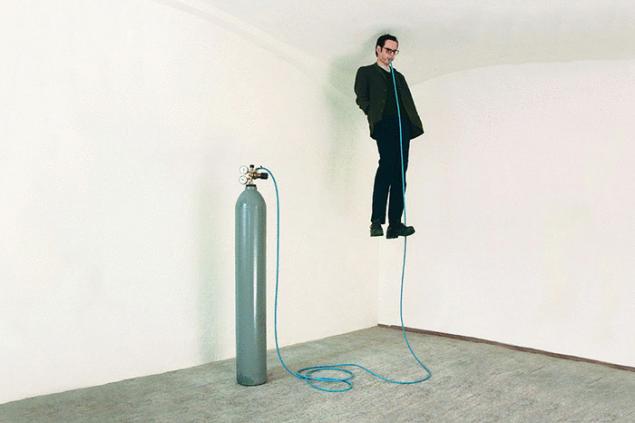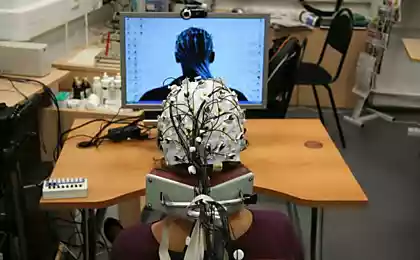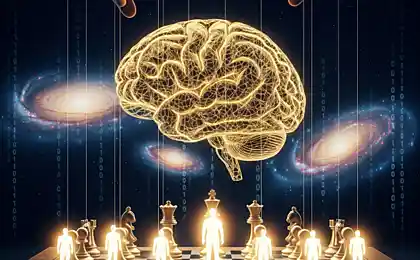187
Cheating glad: how our brain helps scammers

© Werner Reiterer
Imagine that on the street you want to donate some money to charity. A nice person representing the church foundation says it's too generous an offering. You look for a smaller banknote, and at home you find that a fairly large amount has disappeared from your wallet. In such a situation, you should not scold yourself for stupidity and trust. According to neuroscience, our brains are largely programmed to be deceived, thanks to the vagaries of our perception and attention systems. The key to pickpocket success is not dexterous fingers, but practical knowledge of the loopholes of our brain. Some scammers are so good at what they do that researchers turn to them to find out how the brain works.
One of the most fundamental weaknesses of our brain is that it is not designed for multitasking. Most of the time, this is useful because it allows us to filter out all but the most important aspects of the world around us. But it's exactly this same mechanism that allows us to be cleaned to the thread.
Neuroscientist Susanna Martínez-Conde, author of The Skill of the Mind, studied the signature tricks of the famous Apollo Robbins, a master of fraud, who performs on stage: “When Apollo brings people to the stage, he talks a lot, touches them, comes close and thereby causes an emotional reaction to the invasion of personal space, that is, completely loads the human attention system.”
The key to pickpocket success is not dexterous fingers, but practical knowledge of the loopholes of our brain.
Street pickpockets use attentional work in the famous "collision" scheme. The first member of the group of scammers overtakes the chosen victim while walking and suddenly stops, so that the victim swooped on him. The second member of the gang specially crashes into both of them, and then acts out a quarrel with his accomplice. And while the victim's attention is occupied by the incident, one of the pickpockets pulls out everything he needs and imperceptibly passes it to his third accomplice, who is hiding with the prey.
“You don’t have to distract a person from something, you have to switch their attention,” says James Brown, a British magician and hypnotist, “If I need you to stop looking at objects on the table, it’s much easier to give you a good reason to look elsewhere.” I create 2-3 focus areas, and this is much more effective because you have the illusion of freedom of choice.
Attention can also be affected by more private things, such as hand movements. Apollo Robbins shared with Susanna Martinez-Conde one observation: the way he moves his arms affects the success of the deception. When he drew a straight line in the air with his hand, it was less effective at holding human attention at the final point than when moving smoothly along the arc. When moving along the curve, the human eye monitors the movement and stops at the place where the hand comes. And in the direct movement, the eye returns to the starting point and is tossed between it and the final point.
Experiments in the field of oculography, tracking eye movements, confirmed Robbins' guess. In our visual system, movement along the curve involves so-called smooth tracking, in which the eye continuously pursues a moving object. Movement in a straight line leads to saccades, rapid (in a fraction of a second) movement of the eye between point A and point B.
Accordingly, with smooth tracking, the viewer observes the moving object all the time, and thanks to saccades, when drawing a straight line, he sees the object only at the beginning or at the end of the movement. Therefore, the fraudster can choose one or another type of movement depending on what he wants to attract or distract the attention of the victim.
If you want to play with human perception, then a very good time to do this is late evening in the city, when after a few glasses in the eyes of people everything becomes somewhat fuzzy. James Brown specifically studied the techniques of pickpockets working near bars near Trafalgar Square: One of the classic tactics is that a nice girl catches up with you on the way out of the bar and strikes up a conversation. Since she is also allegedly drunk, she begins to sway slowly. You, as an interlocutor, are unconsciously adjusting. It starts to swing harder and harder, so it rocks you and you fall. A nice girl and maybe her friends help you up. In the morning you find that you have lost your wallet or your watch.”
“Knowing the tricks of fraudsters will allow your values to stay with you longer,” Brown said. He also recalls that pickpockets fear as fire those people who clearly demonstrate awareness, attentiveness and control over what and who surrounds them.
Source: theoryandpractice.ru
Life without DNA and RNA artificial enzymes that will lead to the emergence of new organisms
Why would SpaceX need an experienced farmer























